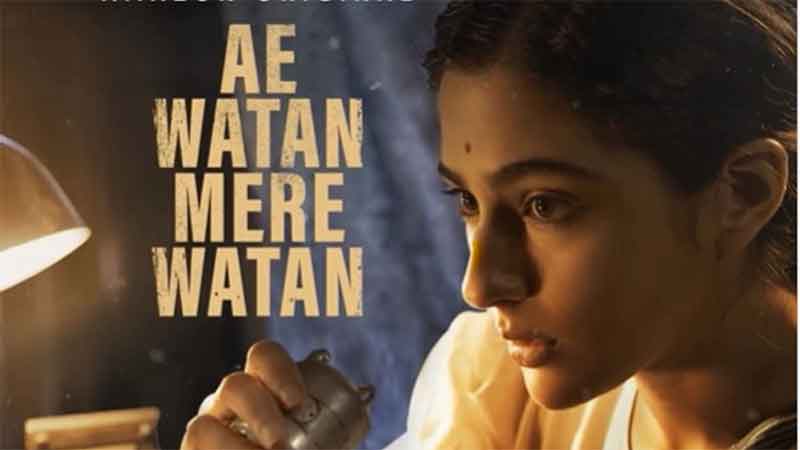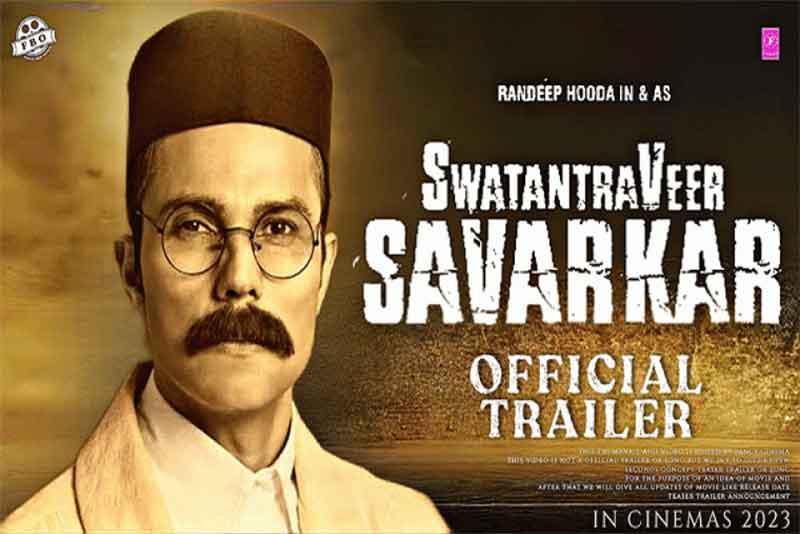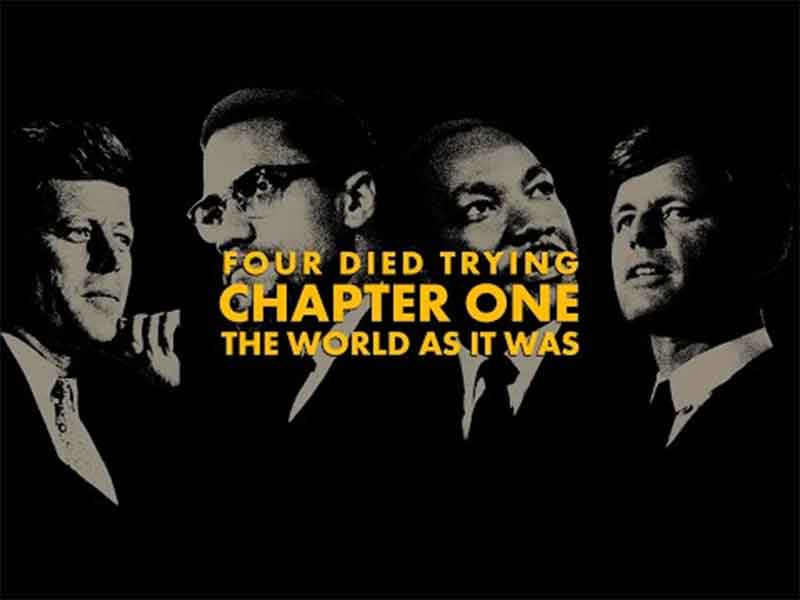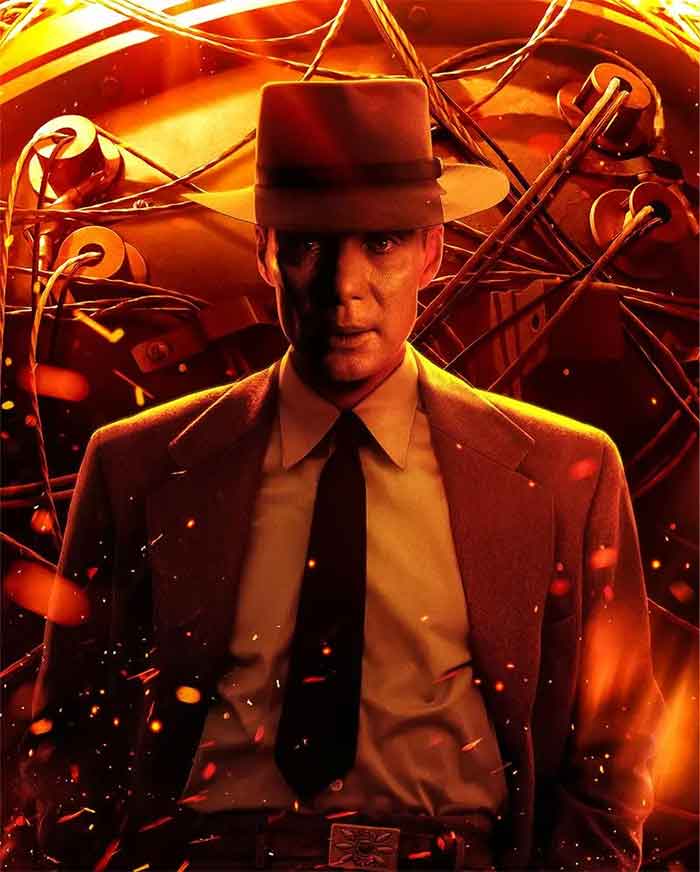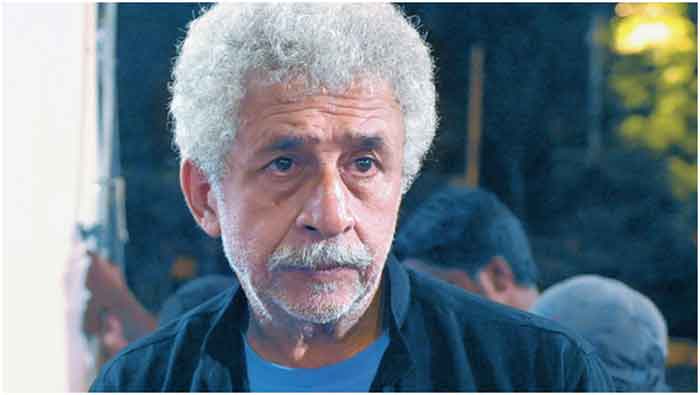
Without doubt Naseeruddin Shah is one of the greatest actors ever to have set foot on Bollywood silver screen, arguably close to the very best. This year we celebrate his 70th birthday. There were many more attractive or charismatic actors but few surpassed the ability of Naseeruddin Shah to meld into a character in such depth, or give it as much realism. There was a subtle element of rawness in his portrayals, reflecting a style noone else did.Naseerudin Shah took acting prowess to magical proportions.
He may have lacked the grace of some of the best actors and often projected a crude look, but still projected the inner feelings of a person as few ever could. His acting may not have equalled the intensity of some of the best actors, but very few could express such a diverse sphere of emotions within one role itself. His acting craft was reminiscent of a surgeon performing an operation on patient considered incurable or a soldier waging a battle on no man’s land. What was remarkable is even in 180 degree twists and turns in emotions like changes in a season, he never went out of the essence of the role , like a soldier fighting in a war coming out unhurt. Whether in state of ecstasy or being tormented the soul of the character remained undeterred.
Naseeruddin was not classical or graceful like a Dilip Kumar or Balraj Sahni or as methodical as Amitabh Bachan but for sheer malleability by the slenderest margin surpassed them all. None of those great stars enacted as many negative roles as Naseerudin Shah .I doubt any actor could incorporate so many diverse elements more into a single role, be it innocence or mischief. In projecting a Dr Jekyll and Mr Hyde he had no equal. Few actors ever, when being casted in a multi-starrer or not as a principal lead, could be equally impactful in steering the course of a plot.
Few actors looked more like a manifestation of pure energy or a man meditating.Naseeruddin had an element of mystery in his acting as almost none else, able to put a viewer in complete suspense. In a conventional manner his acting did not possess the grace of a Rachmaninoff composition or beauty of a Rembrandt but still could traverse regions of wizardry unsurpassed. At times he reminded one of a scientist experimenting, keeping an audience guessing like noone else. With mimumum use of histrionics Naseeruddin Shah could still exude the sensation of a Tsunami in a film. Arguably no Hindi film actor was more clinical, resembling a sculptor chiselling a statue to perfection.
In portraying a common man reflecting the inherent nature of feudal society Naseeruddin was champion. Without deploying so much hysteria, utilizing malevolent craft he portrayed characters. Even in a multi-starrer it would be Naseeruddin’s acting that would be the binding force in weaving the plot. He displayed as much mastery in family themes as in social roles with his art equally subtle in romantic leads, negative roles and portrayals of a crusader for justice.
Above all he has raised his voice against the menace of Hindu affron fascism and against the suppression of dissent being a vocal critique of the Modi Govt.Few stars have ever spoken out against the injustices meted out like Shah. He openly condemned the NRC-NPR,Arrest of Urban intellectuals and gave tacit support to the famers agitation against agricultural bills. In some ways I admire his criticism of conventional Bollywood films. as being virtually slaves of commercialism. I appreciated his criticism of superhit Sholay, which reflected the true essence of the epic .The film industry could be proud of containing elements like Naseeruddin Shah who reflect democratic or liberal spirit. I justify his vendetta on the lack of moral values in Hindi films in recent times and on the gross apathy of film industry towards social causes.
I wish Naseeruddin Shah could have been portrayed in more classical roles, as a crusader against injustice or for morals as the great stars of yesteryear like Raj Kapoor,Dilip Kumar or even Manoj Kumar. It would have been fitting if he could have galvanised a pro-people theatre or film movement combating imperialist values and culture. Not enough of his roles in my opinion, championed moral values. In my opinion he was not given as challenging roles as the best of Dilip Kumar, Sanjeev Kumar, Amitabh Bacchan or even Rajesh Khanna.or Balraj Sahni.I wish he could have been given a similar task of enacting 9 characters in a single film like Sanjeev Kumar in ‘Naye Din Naye Raaat’or a double role. I also feel we missed out on witnessing this actor in championing role of a crusader for secularism ,in the dark times of today.
One blot in the book is his hardly being appreciative of great actors like Balraj Sahni and Sanjeev Kumar or even Raj Kapoor but idolised Amitabh Bacchan as a role model. I am also critical of Naseer being too hard on late superstar Rajesh Khanna.Still I like his admiration of veteran Dilip Kumar and Shammi Kapoor.
His 10 best performances in my view have been in ‘Sparsh’, ‘Paar’, ‘Nishant,” ‘Ijazat,’ Masoom’, Wednesday ‘,’Albert Pinto Ko Gussa Kyo Atta Hai,”, ‘Pestonjee,’,,” “Mohan Joshi Hazir Ho” and “Bazaar.”
With a gun on my head I would rank Naseeruddin Shah amongst the four best or complete Hindi film actors ever with Dilip and Sanjeev Kumar as well as Balraj Sahni .Arguably in pure versatility Naseeruddin Shah may have outstripped all 3 of them, who never portrayed negative roles. However he lacked their grace onscreen. In my view as a pure actor Naseeruddin Shah overshadowed superstar Amitabh Bacchan. Personally I rank him as the best Hindi film actor of the modern era.
No actor had a better chemistry with actress Shabana Azmi as Naseeruddin Shah.Together they formed the best ever pair in Hindi art films.
Best Films of Naseeruddin Shah
In Nishant (1975) with great fluidity and dynamism he immerses into role of Vishwam ,a village tyrant of a landed gentry ,dominating lower caste women. His role played a major role in weaving the plot of the theme of the tyranny of lanlordism prevalent in society. Rarely was such rawness displayed on the screen in negative role of a villager. The crudity of the nature of a zamindar or dominating personality is brought to the fore .Few actors ever portrayed the feudalism penetrating Indian society so illustratively. Superbly contrasts behaviour when he is with his wife and when with Sushila. Acting as natural as flow of river water.
Vishwam (Naseeruddin Shah) is the youngest brother of the powerful and influential village Zamindar (Amrish Puri). The Zamindar will not hesitate to do anything for the welfare and protection of his family, which also includes bending the law to his own advantage. The shy and quiet Vishwam is married to Rukmani (Smita Patil) and, unlike his brothers Anjaiya (Anant Nag) and Prasad (Mohan Agashe), does not indulge in alcohol or women.
The village gets a new schoolmaster (Girish Karnad), who has a wife, Sushila (Shabana Azmi). When Vishwam sees her for the first time, he is unable to take his eyes off her, and unable to get her out of his mind. Sushila does not reciprocate his attentions. One night, while the schoolmaster is enjoying a quiet dinner with his family, the bell rings and the two older brothers of Vishwam grab Sushila and take her forcibly when she goes to answer the door. Several people are present, but no one dares to raise a hand nor even a voice to stop this abduction. The distraught schoolteacher, who is denied justice by everyone from the local police officer to the district collector, is helped by the old priest (Satyadev Dubey) and finally they succeed in mobilizing the villagers and they slaughter their oppressors. In the end the frenzied villagers also kill the innocent Rukmani as well as Sushila whom her husband tried to rescue.
In Junoon(1978) although in a supporting role to Sashi Kapoor,Naseeruddin plays a major role in unravelling the essence of the plot or infusing elements which made the movie a hit. He exuded spirit of rebellion or anti colonial fervour at the magnitude of an inferno .The story is based on the 1857 rebellion wit h Shan enacting role of Sarafraz Khan who is the bother of law of Javed Khan enacted by Sashi Kapoor.,as a red chieftain with Muslim Pathan heritage.Quoting rediff.com “The obvious histrionics and ferocity of his mutinous Sarfaraz Khan, striving against the ‘angrez‘ mouthing its most memorable line, ‘Hum Dilli Haar Gaye Hai’ with all his might, continues to wow.”
In Sparsh(1980) Naseeruddin as a blind school principal, virtually makes a blind man look as though he is devoid of any handicap and equally capable as any person. He brilliantly expresses his conviction of never expressing pity when teaching blind children and superbly crystallizes the ebb and flow of love relationship with Shabana Azmi.Sensitivity at its deepest realm, with truly classical acting.
This film is about the blind, in particular about the lives and feelings of blind children and the principal of their school. Sparsh refers to the sensation and feeling of touch upon which blind people rely in the absence of sight.
The story opens with Anirudh Parmar (Naseeruddin Shah) as the principal of Navjivan Andhvidyalay, a school for the blind that educates about 200 blind children. Anirudh has a dark and lonely existence for the most part. One day, while on his way to the doctor, he hears a lovely song and ends up mesmerized at the singer’s door instead of the doctor.
The voice belongs to Kavita Prasad (Shabana Azmi), a young woman recently widowed after three years of marriage. Kavita, too, prefers a secluded existence. Her childhood friend Manju (Sudha Chopra) is about the only friend she has.
Manju throws a small party where Kavita and Anirudh meet again. He recognizes her from her voice. During the conversation, he mentions that the school is looking for volunteers to read, to sing, to teach handicrafts and spend time with the children. Kavita is reluctant, but she is urged by Manju and her husband Suresh to strongly consider it. Kavita decides to volunteer.
As Kavita spends more time at the school, she begins forming a friendship with Anirudh. The friendship grows stronger over time and they become engaged. But their personalities and feelings are different. Anirudh is of strong character. He firmly believes that the blind need help but not pity or charity. (When once, in his office, Kavita attempts to assist him with coffee, he gets enraged at the thought of his guest offering to overcome his obvious difficulty with hospitality.) Kavita, recently bereaved, looks to the school (and Anirudh) as a way towards an ideal, one of sacrificial service. Anirudh gets wind of this and assumes Kavita is simply seeking to fill the void in her life with this form of service. He assumes she accepted the proposal, not out of love, but as a sacrifice towards a way out of her dark life. During this time, Anirudh’s fellow blind friend Dubey (Om Puri) laments that his recently deceased wife was not happy in their marriage.
Anirudh is shaken, confused and disturbed by all this. He breaks off the engagement (but does not mention the reason to Kavita). She accepts his decision.
Kavita, now a salaried employee of the school, continues to help the children. The initial coldness between her and Anirudh gives way to friction and eventually, over a series of events at the school, brings up the feelings they were not able to discuss before. The situation spirals downward and one of them must leave the school.
The movie ends with Anirudh and Kavita being ‘touched’ by the depth of their feelings for one another and finally seeing a way out.
In Albert Pinto Ko Gussa Kyoon Aata Hai (1980)he very craftily portrays the inner evolution within a person to evolve into class conscious worker seeking to confront the capitalists. In a most unemotional manner he illustrates the circumstances that change the outlook of a worker from individualism to collectivism. Rarely seen a star so naturally portray an industrial worker or his evolution. defining the class dynamics of his time.
The film captures the anger of a worker, in Mumbai exemplified by a young Christian car mechanic, Albert Pinto (Naseeruddin Shah), who is under the illusion that if he works hard and emulates the rich, one day he can also be successful. He makes friendly relations with his customers, who are usually the rich of the city and who keep telling him that good workers do not go on strike, and that strikes are the handiwork of low-class elements. Pinto gets angry with the supposedly wrong attitudes of the workers who he assumes go on strike under any pretext. However, when Pinto’s father, who is a mill worker is abused by the low-class elements hired by the mill owners, he realizes that it is not the workers, but the capitalists who should be blamed for the plight of the workers. He also realizes the legitimacy of strikes. Towards the end of the movie, Pinto still remains an angry man; but now his anger is directed against the capitalists, not the striking workers.[
In Aakrosh (1980) with the skill of a surgeon performing a delicate operation he portrays a lawyers who is a crusader for justice. Sensitivity and conviction in depth in a role as a lawyer rarely surpassed in Hindi films.
Allegedly based on a true incident reported on page 7 of a local newspaper, the film was a scathing satire on the corruption in the judicial system and the victimization of the underprivileged by the able and the powerful.
Here the victim is shown so traumatized by excessive oppression and violation of his humanity, that he does not utter a single word almost for the length of the film and only bears a stunned look,[6] though later he uses the same violence as a tool to express his own sense of violation and rage.
Basically, the story is of a peasant who is oppressed by landowners and his foremen while trying to eke out a living as a daily laborer. His comely wife, played by Smita Patil, is raped by the foreman who then has him arrested to hide his own crime. His wife commits suicide out of shame.
Soon after his father’s death, the police bring him to the funeral grounds in manacles and shackles to complete the last rites of his dead father. Standing beside the burning funeral pyre, he sees the foreman looking at his pre-pubescent sister with lustful eyes. Divining the fate that is in store for her, he grabs an axe and chops off his sister’s head to forestall her dire future as a perpetual victim, as he sees it. Upon completion of this hapless act of a desperate and downtrodden man, he raises his face towards the skies and screams, and screams and screams – the second time that we hear his voice in the movie (the first is in a flashback, as he vainly attempts to rescue his wife) — a device similar to Andrei Tarkovsky’s showing of the icons in brilliant color at the end of his three-hour black-and-white film Andrei Rublev.
In Bazaar(1982) as a lover of Najma (enacted by Smita Patil)Salim he crystallizes the theme of how tormented women are in society. The sensitivity he expresses with hardly any trace of emotional outburst, is noteworthy. He represents a crusader against the bondage of women to prostitution or subordination to other men and persuades Najma to liberate herself from her current stranglehold. His role is portrayed in superb contrast to that of Farooq Shaikh ,enacting role of Sarju.
In Masoom(1983) with classical craft he illustrates the ebb and flow in love relationship or bondage with a lover. He superbly portrays the nascent feelings within an individual. Quoting Rediff.com “He brings a genuine, good guy quality to man whose shame and sadness evoke sympathy as he tries to undo the damage and atone for being a guilty husband and unavailable father.”
Indu (Shabana Azmi) and DK (Naseeruddin Shah) have a happy marriage and two daughters — Pinky and Minni — and live in Delhi. The tranquillity of their life is interrupted when DK receives word that he has a son, the result of an affair with Bhavana (Supriya Pathak) during his 1973 visit to Nainital when his wife Indu was about to give birth to their first child Pinky (Urmila Matondkar). Bhavana did not tell DK about their son as she did not want to disturb DK’s matrimonial life. Now that she has died, her guardian Masterji sends word to DK informing him that his son, Rahul (Jugal Hansraj), who is nine years old, needs a home. Despite the objections of Indu, who is devastated to learn of her husband’s infidelity, DK brings the boy to stay with them in Delhi. Rahul is never told that DK is his father as he bonds with DK and his daughters. But Indu can’t bear to look at him, a tangible reminder of DK’s betrayal.
DK, worried by the effect Rahul is having on his family, decides to put him in a boarding school in St. Joseph’s College, Nainital; Rahul accepts with reluctance. After gaining admission at the school and returning to Delhi before his permanent move to Nainital, Rahul figures out that DK is his father and runs away from home. After he is escorted home by a police officer, Rahul confesses his awareness of the identity of his father to Indu. Indu is unable to bear his heartbreak and intercepts Rahul before he is put on the train to Nainital, thereby accepting him into the family and wholeheartedly forgiving DK, after which they drive home happily.
In Jaane Bhi do yaaro(1983) as part of a multi-cast he plays major part in shaping the story by infusing comical element or humour ,in the manner of lighting candles on a cake. He gave the required bubbles to the script.
Quoting Rediff.com: Kundan Shah’s satirical masterpiece is full of madcap characters. Be it the corrupt Tarneja and Ahujas of the construction industry or the wandering corpse D’Mello. For a good part, Naseer keeps it real and romantic to compliment his goofier companion, Ravi Baswani.But his humorous side comes out in ripples when asked for secret codes or fancy-dressing to participate in the iconic Mahabharata stage scene. Jai ho!
In Paar (1984) He brilliantly portrays the role of the enslavement and humiliation of a dalit worker and his journey with his wife to emancipate themselves from clutches of tyranny. Symbolizes rural exploitation in its gravest dept or reality. Rarely in Hindi films has an actor so deeply immersed into the very skin of a peasant. With barely any histrionics Shah exuded the turbulence and intensity of a thunderstorm. Acting as natural at the movement of the river water they are travelling in. Above all morally wins battle to liberate.
Quoting Rediff”Naseer’s imposing persona and baritone are nowhere to be found in Goutam Ghose’s striking adaptation of Samaresh Basu’s short story. Rather it’s his defeated disposition that haunts through hard-hitting scenes of struggle and humiliation.Besides a spectacular climax involving him herding a drift of pigs across the river, the actor is superlative as the impoverished villager Naurangia forced to flee home with pregnant wife in tow in wake of caste wars.”
The film of exploitation in rural Bihar, in which a landlord (Utpal Dutt)’s men wreck a village and kill the benevolent schoolmaster (Anil Chatterjee) who was a progressive force in the village. The labourer Naurangia (Naseeruddin Shah) breaks with a tradition to passive resistance and retaliates by killing the landlord’s brother. Naurangia and his wife Rama (Shabana Azmi) become fugitives from justice. After many efforts to find sustenance elsewhere, the two decide to return home. To earn the fare, they agree to drive the herd of pigs through the river, causing the pregnant Rama to believe she has lost her baby. But they have to swim across a wide, swiftly flowing river, in which they nearly drown before reaching safety. At the end of the film Naurangia puts his ear to her belly and listens to the heartbeats of the unborn baby.
In Mandi (1984) with subtle expression he projects the character of an indulgent person in a brothel and how he moulds the lives of a prostitute. With great mastery he illustrates the craving of a person and how circumstances shape life.
In Mohan Joshi Haazir Ho (1984) Saaed Akhtar Mirza’s satire about an elderly couple’s travails to seek justice against their crafty landlord brings Naseer and Satish Shah’s legal eagles in the picture.Naseeruddin plays lawyer on the side of justice, camouflaging the essence of his true being with tacit manipulation. Bettered his performance as an advocate in Aakraosh,earlier. A classy and most expressive acting performance, superbly varying expressions in accordance to the circumstances. In most subtle manner portrayed social reality.
An elderly couple, Mohan Joshi (Bhisham Sahni) and his wife (Dina Pathak), sues their landlord (Amjad Khan) for not maintaining their ‘collapsing’ apartment building. For this, they hire two cunning lawyers (Naseeruddin Shah and Satish Shah), while Rohini Hattangadi is the opposition lawyer.
The court case drags on for years and the lawyers milk the old couple dry, while they become rich. Back home in the society, the old couple is ridiculed for fighting the landlord, but they fight on nevertheless.
In the end, when the judge comes to check the condition of the chawl, the landlord’s men prop up the place, thus convincing the judge that all is well. Finally, Joshi gathers all his strength and pulls down the temporary supports put up by the men causing the building to collapse on himself.
In Khandhar (1984) although understated he still embezzles displaying artistic touch in his role as a photographer., giving the movie it’s spiritual essence. Three friends from the city visit some ruins where an aged mother (Gita Sen ) and her daughter Jamini (Shabana Azmi ) live. Mother awaits the arrival of a distant cousin to marry Jamini, but the man is already married and living inKolkata.. The photographer Subhash (Naseeruddin Shah) takes pity on the family and pretends to be the awaited suitor. They keep up the charade for the duration of the trio’s visit, Subhash quietly becoming attracted to Jamini even as he understands the fate awaiting her. When the friends leave, Jamini stays behind, facing a life of loneliness in the ruins.
In Ijaazat (1987) Naseeruddin takes vulnerability in love to unprecedented heights in shaping a romance triangle. He effects ebb and flow in emotions in sublime proportions, weaving a chemistry of love with striking balance or composure.Naseer gives the added element of mystery here as few artists could ever do .
The movie is a powerful story of retrographical middle class India. It is about the present and past of Mahendra and Sudha together as well as separately. The movie starts with Mahendra (Naseeruddin Shah) getting down at the railway station and making his way to the waiting room just as it starts to rain heavily. A woman, Sudha (Rekha), is already sitting in the waiting room. On seeing him, she tries to hide from him but later they confront each other.
It is revealed that Mahendra has an accomplished business dealing with photography. He respects his grandfather (Shammi Kapoor) immensely. Incidentally, he had been engaged to Sudha for 5 years but always made an excuse to delay their wedding. However, this time his grandfather has fixed the wedding in the first week of the following month. He reveals to Sudha that he is involved with one of the most radical representations of feminism, a woman named Maya (Anuradha Patel). He returns to tell Maya, but Maya has disappeared, leaving him some poetry. Mahendra then marries Sudha and is quite happy, but the sudden return of Maya causes tensions in their married life. Mahendra frequently tells Sudha about all the beautifully poignant, loving gestures Maya did for him during the years that they lived together. When Maya attempts suicide, Mahendra starts spending time with her. Sudha, not knowing about Maya’s suicide attempt and therefore believing that Mahendra is being unfaithful to her, feels that her marriage was a mistake, and questions Mahendra about his intentions. He then tells her strongly that he is going to bring Maya home to talk to her. Sudha is adamantly against this, but Mahendra leaves with determination. However, Maya hears Sudha’s anger on the phone and by the time Mahendra reaches to pick her up, she has gone away. When he returns home without Maya, he finds that Sudha has also left. Mahendra, unable to bear the shock, gets a heart attack. In the days and months that follow, he is looked after by Maya. Sudha continues as a teacher in Panchgani. As time passes, Mahendra is beginning to feel convinced that it is time for him to bring Sudha back home. He then gets Sudha’s letter saying that she is releasing him from their marriage and that he is free to marry Maya. A sudden uncontrolled outburst from Mahendra makes Maya realise that she was the cause for Sudha’s departure and that Mahendra misses Sudha deeply. Maya feels estranged at this abrupt change in their relationship and in the night, rides off on her motorbike. Mahendra rushes to follow her in his car to stop her. Maya’s scarf gets entangled in the rear wheel of her bike, which strangles her to death.
Ending the flashback, Sudha is deeply saddened on hearing about Maya’s end. Later, as the time for their train approaches, Sudha’s husband (Shashi Kapoor) bursts in unexpectedly to pick her up, and Mahendra realises with a shock that Sudha has remarried. As Sudha’s husband leaves the waiting room with her luggage, Mahendra asks her to forgive him. She touches Mahendra’s feet as a plea for his forgiveness and for his permission (Ijaazat) for her to leave him, something which she had not received the last time they had separated. Mahendra grants her wishes, speaks well of her husband, and gives her his blessing for a happy life. Sudha’s husband returns to see what is holding her up, and then, seeing Sudha’s teary face, realises that this man must be her former husband. The movie ends with Sudha and her husband moving on along the platform and Sudha lingering a little with regret, as if not wanting to leave, while Mahendra stands outside the waiting room looking on forlornly as she recedes from him.
In Mirch Masala(1987)ihe plays a negative role of a subedar in colonial era trying to molest a village girl enacted by Smita Patil as Sonbai .Naseeruddin reveals barbarity ,brutality or sadism at it’s highest magnitude and one can barely feel it is Naseeruddin Shah who is casting. I doubt any actor of his day or possibly ever could surpass his penetration of the character. One literally got vibrations of a monstrous creature coming from hell.
In Pestonjee(1988) with great flair he plays a role in a parsi romance with continuous flux of joy and despair and experience of illusion. Subtle detachment and sensitivity in acting.
The film is an intimate look into the life and manners of the Parsi community, especially those living in the city of Bombay (now Mumbai) in the 1950s and 60s. Piroj Shah (Naseeruddin Shah) and Pestonjee (Anupam Kher) are close friends. They like to do everything together (and even plan to get married on the same day), even though they are very different in temperament. Piroj Shah (Piroj) is quiet, thoughtful and indecisive, while Pestonjee (Pesi) is an extrovert. Phiroj is unable to make up his mind about marrying a girl, Jeroo (Shabana Azmi), selected for him by a matchmaker. It is Pesi who ends up marrying her. Piroj has fallen in love with her, but does not begrudge Pesi his happiness. He decides not to marry, and moves to another city. They keep in touch by mail. Piroj is delighted to hear that Pesi and Jeroo are expecting a baby. He decides to travel to Bombay to visit them. During his visit, Piroj learns that the married life of Pesi and Jeroo is not as he had imagined it. Piroj is horrified to discover that Pesi has a mistress. Jeroo has had a miscarriage which Pesi later informs him, when confronted by Piroj about his mistress, was actually an abortion due to Jeroo’s fear of dying in childbirth as her mother had. He is saddened by how Jeroo has changed. She is no longer the pretty girl she was, but appears cantankerous and uncaring. Both she and Pesi are unhappy in their marriage. Piroj resolves not to meet them, but mentally is unable to keep himself aloof. All three carry on with their unhappy lives until Pesi’s sudden death. Finally, Piroj discovers that he cannot help Jeroo. Soona (Kiron Kher), Pesi’s mistress whom Piroj Shah had thought of as a loose woman, ends up paying for the funeral which Piroj Shah repays to her as he cannot abide the thought that in even his death, Pesi’s mistress has a hold on him. In the end, Piroj realizes that life was not what he imagined it would be and it is everybody’s journey in life to find and determine what their own happiness is.
In Iqbal(2005) with great composure he plays the role of Mohit as a hockey coach who steers the path of prospective Iqbal,played by Shreyas Talpade.Naseeruddin’s natural demeanour is eye catching and heart touching in motivating the young land, through breaking the psychological barriers. Inspiration to the youth in sport today.One of the most nuanced and balanced acting performances, displaying soft mannerisms.
In Wednesday (2008) he delicately and most poignantly portrays a crusader against terrorism from the common ranks ,giving due respect to aspect of psychology. A most simplistic but yet qualitative performance.
Police commissioner Prakash Rathod (Anupam Kher), resting after a jog, describes in a voice-over that he is going to retire the following day. He goes on to describe the most challenging case he faced in his career.
An unnamed man (Naseeruddin Shah) carries a travel bag, assumed to contain explosives, in the Chatrapati Shivaji Terminus railway station and proceeds to hide the bag in the restroom of a police station opposite to the Mumbai Police headquarters. He then arrives on the rooftop of a building under construction where he has set up his base of operations, equipped with several sim cards, mobile phones and other electronic gadgets. He calls Rathod and informs him that he has placed five bombs in locations throughout Mumbai and has programmed them to explode simultaneously within four hours unless the Commissioner gives in to his demands and releases four militants. In response, Rathod immediately alerts his team involved in intelligence research and surveillance, tapping all the available resources to trace the location of the caller. Meanwhile, the caller tips off television news reporter Naina Roy (Deepal Shaw), telling her to reach the police headquarters immediately as it is going to be “the most important day of her life”. Rathod initially suspects the anonymous caller is bluffing, but his doubts are dispelled as the caller, to prove his seriousness and the police force’s helplessness, reveals that a bomb has been planted in the Colaba Police Station right across the Police Headquarter. He further scares them by calling the cell phone attached to the bomb but does not detonate the bomb. Just then Roy reaches the scene on the caller’s instructions and reports about the situation.
As Rathod and his team desperately try to locate the caller, the four militants demanded by the caller are rounded up by police officers Arif (Jimmy Sheirgill) and Jai (Aamir Bashir). In the meanwhile, police depute a young hacker named Anuj to track the location of the caller. The caller then asks the two police officers to leave the four militants near a bench on a Juhu Aviation Base runway, but Arif leaves only three militants behind and takes one of them captive as he suspects that the caller would not reveal the locations of the bombs even after the militants are released.
A phone placed under the bench rings once Arif and Jai are several feet away and an explosion occurs in which the three terrorists perish. Arif relays this information to Rathod, and the anonymous caller reveals he does not belong to any terrorist organization, and his plan was not to free the terrorists but to kill them. The caller sought to avenge all the terrorist attacks they had helped carry out in Mumbai and other major cities of India, specifically the 2006 Mumbai train bombings. His final demand is that the officers kill the fourth militant themselves or he would set off all five bombs in Mumbai. In response, Rathod orders indirectly to Arif and Jai to kill the fourth militant.
After the death of the fourth militant is confirmed on the news, the caller calls Rathod for a final time to reveal that he had not planted any other bombs in the city. At this point, Rathod declares he already knew there were no more bombs, hence his decision to kill the last terrorist was not taken in fear but in confidence. Rathod reaches the caller’s location with the help of the young hacker, just as the caller is leaving the place, having destroyed all his gadgets and equipment. The two meet briefly when Rathod, identifying the anonymous caller on the basis of a face sketch, offers the man a ride home and introduces himself.
In a voiceover, Rathod says the man told him his real name but he does not wish to reveal it since doing so would give away the man’s religion. Rathod admits that he knew the caller was disturbed because of the insecure environment and the incompetence of the governing authorities, but he never imagined a common man would go to such lengths to achieve this end. He also notes that the facts of this incident cannot be found in any written record but only in the memories of those who actually witnessed it, and further acknowledges that although the incident has ambiguous moral significance, he personally feels that whatever happened, happened for the best.
In Dirty Picture (2011) he projects a mischievous character and the elements of unscrupulousness ,lust ,mischief, crudity and moral degradation at heights rarely scaled by a conventional star. Superbly incorporates role of sex freak into the theme of the movie, giving it it’s vital spice.
Even if not the hero or principal character Naseeruddin plays a major role in galvanising the theme or plot .Brilliant in establishing chemistry with Reshma enacted by Vidya Balan.
A day before her marriage, Reshma (Vidya Balan) runs away from her rural village, hoping to become a star in Chennai. She fails to impress a casting director, and he insults her for being unattractive and unable to act. Determined to secure a role, she spontaneously auditions for the position of a background dancer. However, she dances in a sultry manner, using erotic movements which annoys the film’s director, Abraham (Emraan Hashmi). He edits out Reshma’s entire dance sequence. The film fails at the box office, much to the dismay of the producer Selva Ganesh (Rajesh Sharma), who later recalls Reshma’s performance and offers her a role in a song in his upcoming film. Selva also suggests that she now be referred to as “Silk”, which is more exotic and captivating.
At the first shoot, Silk dances with veteran actor Suryakanth (Naseeruddin Shah), her childhood idol. Enamoured with him, Silk gains his affection and attention by offering a long-term sexual relationship. Meanwhile, Abraham proposes a new film to Selva Ganesh and is keen to cast Suryakanth. However, Suryakanth’s suggestion of adding sex and eroticism, to make the film more commercially viable, angers Abraham. Silk slowly builds a name for herself in the industry and goes on to do many more sexually charged films with Suryakanth, which catapults her into stardom. She gains many male fans and, in a short time, becomes immensely rich and popular as a Southern sex symbol.
Suryakanth’s younger brother Ramakanth (Tusshar Kapoor) is an admirer of Silk and starts to befriend her. Silk develops a liking for him, after she realizes that he is the first man who loves her for more than just her body and sex appeal. At an awards ceremony Silk is praised for her performance but is insulted by Suryakanth who tells her that she is nothing more than everyone’s “dirty secret”. Hurt by his remarks, Silk announces that she will continue to make her “dirty pictures” and that she has no qualms in doing so. She begins to spend more time with Ramakanth and becomes the focus of tabloid gossip after noted journalist Naila (Anju Mahendru) criticises Silk for having a romantic relationship with both brothers. To avoid scandal, and also to get revenge, Suryakanth drops Silk from his forthcoming films, forcing her to work with smaller, unknown filmmakers. She loses interest in her work and begins to feel threatened by a younger aspiring actress, Shakeela. During a dance challenge she intentionally trips Shakeela, much to the embarrassment of Ramakanth who then decides to end their relationship.
To ease her heartbreak and the rejection from her family, Silk turns to alcohol and chain smoking. She gains weight, causing her to lose her status as a sex symbol. Silk approaches Silva Ganesh with an offer to produce a film together. Ultimately, the audience and industry has lost interest in her, and the film fails. On the other hand, Abraham directs a film which turns out to be a huge hit, and he feels that he has finally proven to Silk (and himself) that his films do not need any sexualisation to be successful. Having lost her fame and fortune, Silk has accumulated so much debt that she approaches a small-time filmmaker, willing to take on any role. She is shocked to find that he wants her to do a pornographic film, and she refuses. He intoxicates her with alcohol and starts filming, without her permission. The place is raided by the police but Silk manages to escape.
Abraham finds himself falling in love with Silk, even though he denies it first, as he struggles with this moral dilemma. During a phone conversation with Silk, Abraham becomes alarmed when she asks him to bid farewell to everyone for her. He rushes to her house, and finds her lying in bed dead from a sleeping pill overdose, along with a suicide note written by her.
The film ends with Abraham’s narration, examining the life that Silk has led, and he questions whether it was her or her life that was right or wrong.
Harsh Thakor is a freelance journalist who has travelled around India and written on blogs like ‘Democracy ad Class Struggle’, ‘Ottos War Room’ and ‘Frontier Weekly.’ Mainly written on politics of mass line in Communist Movement , Maoism, peasant struggles but also on blogs on Cricket and films. Email- [email protected]
GET COUNTERCURRENTS DAILY NEWSLETTER STRAIGHT TO YOUR INBOX

